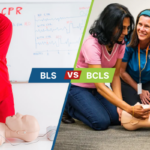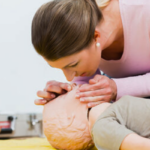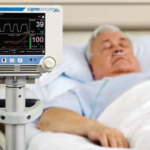
- Last Updated On: October 11, 2023
How Do You Know If You Are Having A Sudden Cardiac Arrest?
Sudden cardiac arrest is a life-threatening condition where your heart suddenly stops beating. It comes to a standstill. It stops pumping blood. As a result, your cells stop receiving the oxygen they need. Within minutes, a lack of oxygen to cells can put you at risk of death. But, if you receive timely help, you can beat the odds.
Cardiopulmonary Resuscitation (CPR) acts as an emergency treatment for sudden cardiac arrest. If performed within the first few minutes of cardiac arrest, it can double or triple the chances of survival.
CPR helps to maintain blood circulation throughout the body. It ensures enough oxygen supply to the brain until a normal heart rhythm is established.
Learning how to perform CPR can prove to be beneficial. It can help you save the life of someone in need. You can register for a CPR course online at The American CPR Care Association today to get certified. The course prepares you to handle and respond confidently to sudden cardiac arrest.
Overview of a healthy heart condition
A healthy heart is the secret to a longer life. So, keep your heart strong and minimize the risk of heart-related ailments.
But what is considered a healthy heart condition? Let us simplify this for you.
- Heart rate – For adults, a resting heart rate between 60 and 100 beats per minute is normal.
- Blood pressure – Blood pressure below 120/80 mm Hg is a sign of a healthy heart.
- Cholesterol – For adults, a total cholesterol level under 200 mg/dL is considered normal.
- Energy level – Having a good energy level throughout the day is a sign of healthy health.
- Breathing – The ability to perform moderately intense physical activities like running or brisk walking without experiencing chest pain or shortness of breath means you have a healthy heart.
Common symptoms of a sudden cardiac arrest
The symptoms of a sudden cardiac arrest often happen the hour before the event. However, some symptoms may show up even a few weeks before. And, a sudden cardiac arrest could also happen with no prior symptoms.
Some of the common symptoms of a sudden cardiac arrest include:
- Racing heartbeat
- Shortness of breath or gasping for air
- Chest pain or discomfort
- Loss of consciousness
- Unresponsive to touch or sound
- Light-headedness
- Weakness or dizziness
- Unexplained seizures
- Nausea or vomiting
- Sudden collapse
- Back pain
- Flu-like symptoms
How to keep your heart healthy?
Sudden cardiac arrest is the leading cause of deaths in the United States. Around 325,000 adults in the nation die every year due to cardiac arrest.
However, by adopting a heart-healthy lifestyle, you can reduce your risk of heart disease. Remember, small actions can help you prevent big mishaps.
So here are a few practical steps you can follow to boost your heart health.
1. Eat healthy
A healthy diet can help protect the heart. It consists of a combination of different foods including fruits, vegetables, legumes, whole grains and nuts. Avoid the consumption of canned, processed, and fast food. Limit intake of salt, sugar, alcohol, saturated fats and trans fat.
2. Get active
Regular physical activity for about 30-60 minutes can lower the risk of heart disease. It minimizes the risk of developing other health conditions that may strain your heart. It helps to maintain a healthy weight. Physical activity also aids in lowering your cholesterol and blood pressure.
3. Maintain a healthy weight
Being overweight increases the risk of heart disease. It can lead to high cholesterol, high blood pressure, and type 2 diabetes. All of these health conditions increase the chances of developing heart disease. Maintain a healthy BMI ranging between 18.5 and 24.9.
4. Manage stress
Elevated stress levels can trigger a cardiovascular event. Adopt healthy stress management techniques to manage your stress. These include relaxation exercises, meditation, deep breathing, and physical activity.
5. Get good quality sleep
You can keep your heart health in check with quality sleep. Studies suggest that people who sleep less than 6 hours are twice as likely to have cardiovascular disease in comparison to people who sleep 8 hours per night. Therefore, make sleep a priority in your life.
Stay prepared for a heart emergency by enrolling on ACCA’s CPR course online
Timely CPR can help save a person’s life in case of a heart emergency. It acts as an emergency lifesaving procedure if a person’s breathing or heart stops. Therefore, it is crucial to learn the technique of giving CPR.
American CPR Care Association offers a wide range of CPR courses online for laypersons and healthcare providers. Taking an effective CPR course from ACCA can help you make the right decision and take prompt action in case of a heart emergency.






